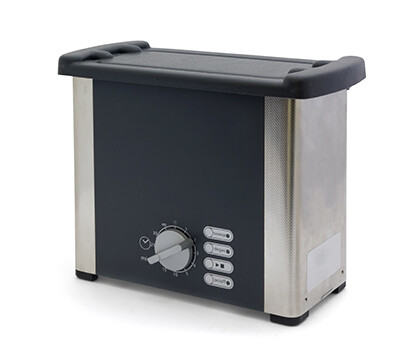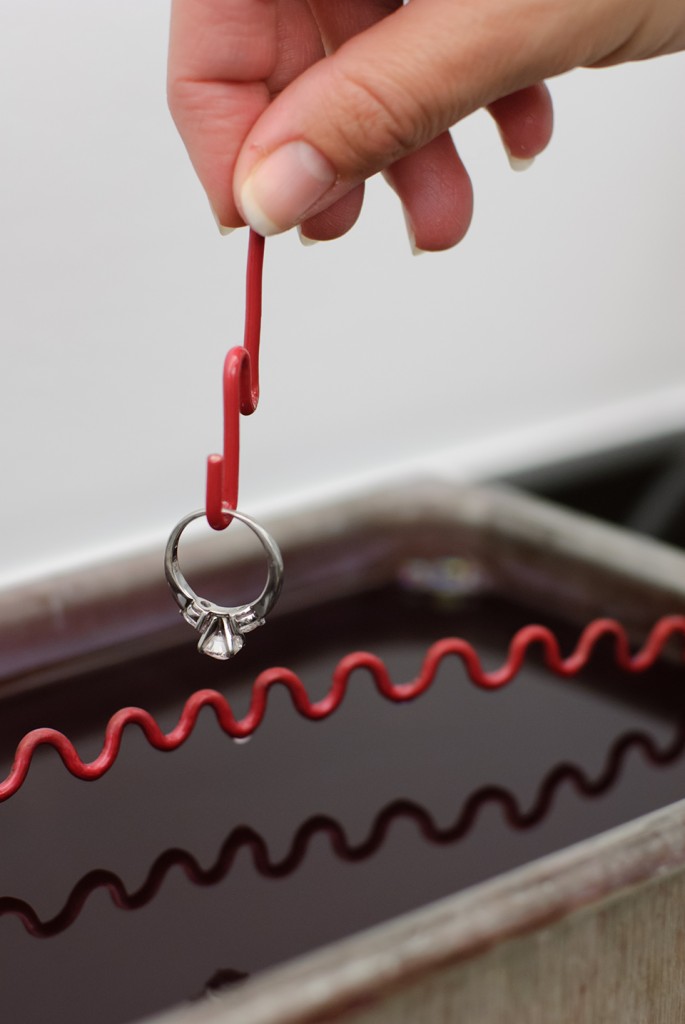CLEANING TIPS
For high karat gold and platinum jewellery and most precious gems (diamonds, rubies, saphires):
- You generally can put these in an ultrasonic cleaner and soak for extended periods
- Can also be cleaned using a mild detergent and hot water with a soft toothbrush. This can be easily accomplished in the shower or while washing dishes.
- Use caution: Sometimes in older rings the gems may fall out in the ultrasonic cleaner. This is because the claws have worn down and the dirt was the only thing holding the gem in. In this case use a tight knit strainer and pour the ultrasonic solution back out through this to try to find the stones.

For 9 karat, 10 karat, silver, and copper jewellery and porous and fragile gems ( opals, pearls, turquoise, lapis, amber, tanzanite):
- Do not use ultrasonic.
- Shine up tarnished metals using a silver cleaner, sometimes a special copper buffing compound may be necessary for copper - limit the gemstones contact time with these solutions.
- Keep semi-precious gems out of sunlight if possible - especially opals (they will discolor and get hairline cracks).
- also not a good idea to put watches or lockets(with pictures) in the ultrasonic, as the action of the tiny vibrations can force the liquid inside even a waterproof watch - which will then rust very quickly. If water does get in, open the watch back and either air dry or use a hairdryer to save the movement.
- Sometimes the pearl string can look dirty. I have been successful with quick dips in the ultrasonic cleaner, then clean water. Often this string discoloration is a sign that the pearls may need to be re-strung.
- There are times when I as a jeweller have used the ultrasonic to clean many of these items that I've told you not to, but I have the experience to know where the danger line is. So if you are having trouble cleaning something, by all means bring it in to a reputable jeweller.
FOR ALL JEWELLERY:
Jewellery is meant to be worn. So it is not surprising that skin oil is very good for many gemstones to enhance their beauty and longevity (such as emeralds or opals).
Many people who come in Ferguson Jewellery to have their jewellery cleaned, are often surprised at the high luster and "brand new" look of their jewellery they get back. When they ask why they can't achieve the same results at home, we reveal that we use a high speed buffer and special polishing compounds. I like to then show people how they can come close to this at home by using a muslin/jewellers polishing cloth and little elbow grease. If you don't have the "special " jewellers cloth, a fabric of 100% cotton can be used along with some jewellery polishing compound to bring about a nice result.
- No toothpaste. The microscopic abrasives of toothpaste are too large to polish metal. You will instead accomplish a slightly dull polish with many brands. The paste also tends to get trapped in the small openings of your jewellery.
- No industrial cleaners or harsh chemicals should be used on jewellery (Bleach, chlorine, ammonia, acetone, turpentine etc.)
- No bleach
- Sitting in hot tubs with your jewellery has been known to discolor, and even weaken the solder joins in gold and silver rings.
- Put jewellery on after applying make-up and hand creams. Make-up can contain abrasives and hand creams can make a mess of your jewellery.
STORING YOUR JEWELLERY:
- Diamonds will scratch other diamonds, so throwing them in the bottom of your purse might not be the best thing for them.
- Try using plastic jewellery bags or zip-lock bags for each individual piece so they don't damage each other.
- Silver is less likely to tarnish when in an airtight container or plastic bag.
- You may wrap items in an acid free paper to store them as well.
- When in doubt, take it to a reputable jeweller!

